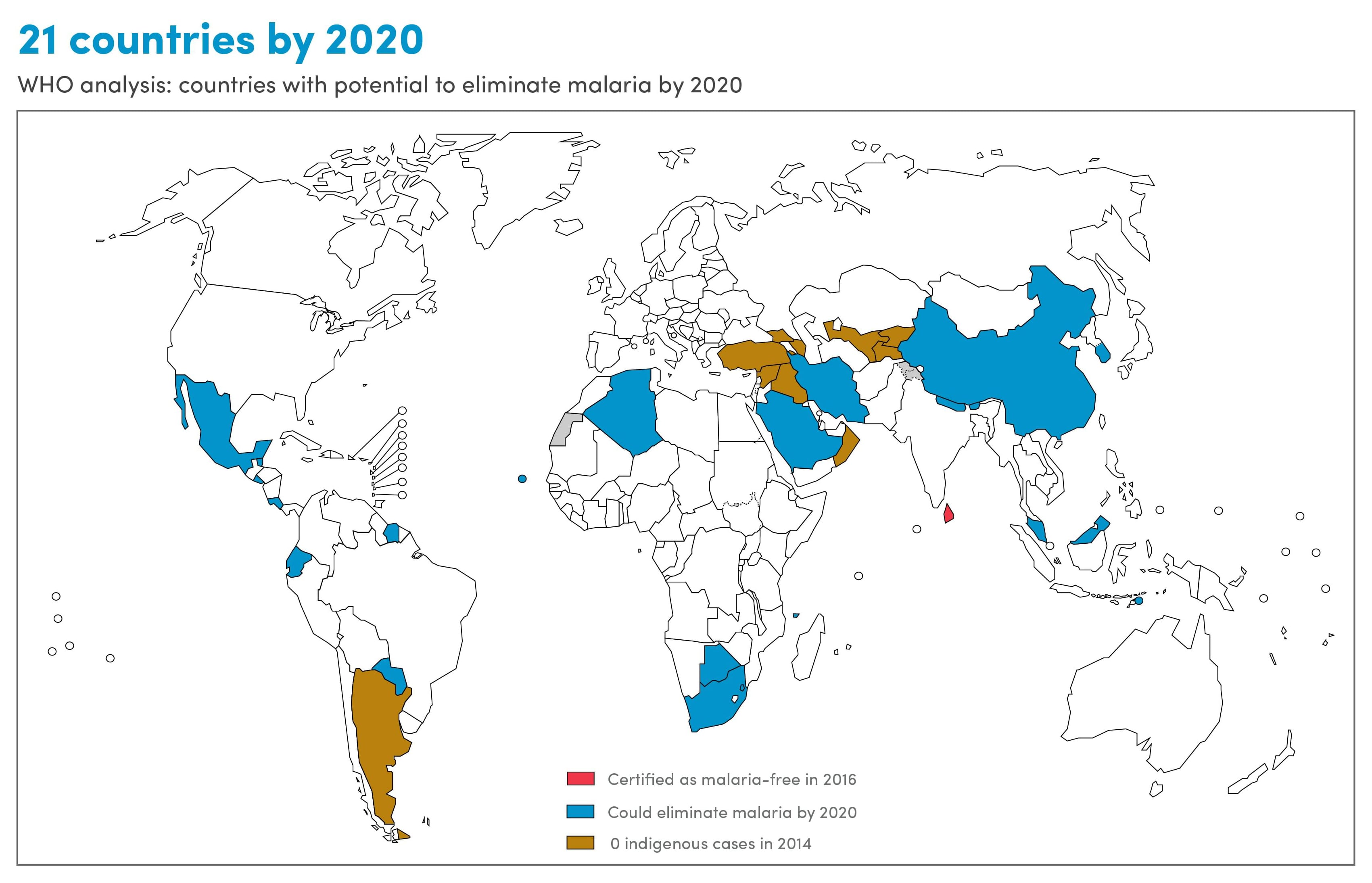In 2015, the World Health Organization (WHO) announced a new strategy for malaria control and elimination and a key goal was eliminating malaria in at least 10 countries by 2020. In the Eliminating Malaria report that WHO published, action-oriented surveillance data was noted as one of core needs.
Malaria surveillance data can only trigger effective actions when the collected data are monitored and used. In countries where malaria elimination is a priority, collected data is stored across multiple organizations and in multiple systems. The distributed nature of these systems prevents the fast and integrated analysis that is critical for data-driven decision making.
 Countries with the potential to eliminate malaria by 2020. Image courtesy of World Health Organization.
Countries with the potential to eliminate malaria by 2020. Image courtesy of World Health Organization.
Although the challenge in pulling together actionable information from different data sources is known to the software industry, existing solutions have targeted highly-trained specialists who work in organizations with large budgets and in countries with stable infrastructure. Further, these solutions do not connect to critical tools like DHIS 2 and ODK that are already in use in these countries.
Nafundi has received a multiyear grant from the Bill & Melinda Gates Foundation to create a free and open-source platform that will enable lightly-trained health workers to integrate these distributed malaria data sources. Over the next eighteen months, we will work with the Gates Foundation and its partners to build, refine, and deploy our platform to enable malaria data integration in Southern Africa.
In early 2018, polio virus was detected in the sewers of Mogadishu, Somalia and the government moved quickly to vaccinate the country's children in order to prevent a potential outbreak. A vaccination campaign targeting more than 726,000 children was launched in the Banadir and Lower and Middle Shabelle regions. The campaign was carried out by some 3,500 staffers and Nafundi assisted by enabling real-time tracking of vaccination coverage using ODK. Read more.
Fayaz Jatoi is the Coordinator of the Emergency Operations Centre (EOC) for Polio Eradication in Sindh, Pakistan. In this guest post, Fayaz describes why AFP surveillance is critical to polio eradication and how an SMS-based reporting system for private care provider helps. Read more.
This position has been filled. Thanks to everyone who applied! Read more.